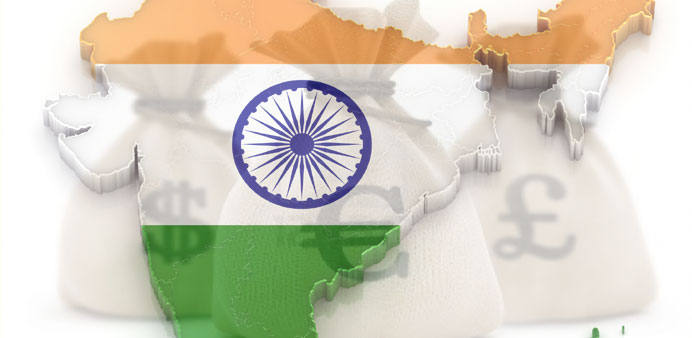AFP/New Delhi
India's government Tuesday announced plans for a sweeping liberalisation of its foreign direct investment (FDI) regime, as Prime Minister Narendra Modi seeks to counter accusations his reform drive is stalling.
The government said it would undertake a raft of reforms to open up 15 areas of the economy, easing the path for overseas investors in several critical sectors including defence, banking and construction.
It will also lift the caps on investing in certain sectors including broadcasting and air transport and will increase the use of "automatic" routes for gaining investment approval in others.
India's Finance Minister Arun Jaitley said the reforms targeted New Delhi's "top priority emphasis" of making it easier for companies to do business in India, notorious for its red tape and labyrinthine regulations.
"In the last few months growth in India is being driven by public investment, some private investment and increased foreign direct investment," Jaitley told a press conference.
"In some areas sectoral caps have been enhanced but more important than that some outdated conditionalities which existed along with the sectoral caps have been either done away with or eased," he said.
The industry-specific reforms include lifting the investment cap on mobile television from 74 percent to 100 percent and opening up the plantation sector to allow investment in coffee and olive tree plantations, where previously only tea was allowed.
The reforms come after Modi's Bharatiya Janata Party suffered a drubbing in state elections in Bihar, in a battle fought largely over development in India's poorest state.
They also appear to be a signal of intent ahead of the prime minister's first visit to Britain as leader later this week, where he will be seeking investment from the former colonial power.
"It is a welcome move and will be positive in the eyes of foreign investors but the impact will only be felt years down the line," Devendra Kumar Pant, chief economist at India Ratings & Research in Delhi, told AFP.
Modi stormed to power in 2014 promising sweeping reforms to revive the faltering economy.
Growth is now chugging along at seven percent, putting India among the fastest-growing of the G20 nations.
But complaints have been mounting about the Indian leader's failure to nail down major reforms to boost investment and help create jobs for India's tens of millions of young people.
The reforms will "go a long way in reviving the investment cycle which is the real need of the hour if India has to be placed firmly back on the high growth path", said Pranav Sayta, a tax partner at EY India.
"Some of the changes could go a very long way in promoting ease of doing business and creating an environment to support job creation."

